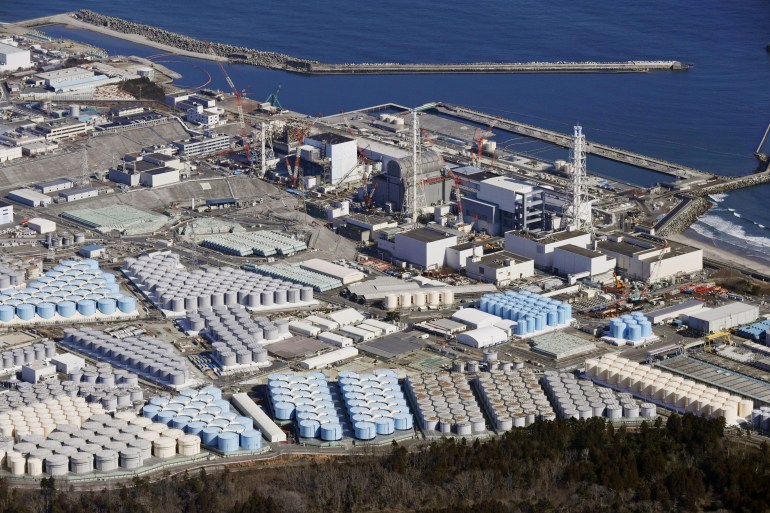![Workers in front of storage tanks for radioactive water at the Fukushima Daiichi nuclear power plant. Japan has confirmed it will release the water into the sea [File: Issei Kato/Reuters]](https://www.aljazeera.com/wp-content/uploads/2021/04/2019-03-08T070742Z_967281832_RC1F07CDF700_RTRMADP_3_JAPAN-NUCLEAR-WATER.jpg?resize=770%2C513)
Japan says it will release more than one million tonnes of contaminated water from the ruined Fukushima nuclear power station back into the sea, in a decision that drew swift condemnation from South Korea and environmental groups and is likely to anger the fishing industry.
The work to release the water will begin in about two years, the government said and the whole process is expected to take decades.
Tokyo Electric Power, which operates the plant, will handle the process.
“On the premise of strict compliance with regulatory standards that have been established, we select oceanic release,” the government said in a statement after relevant ministers formalised the decision.
The water, equivalent to about 500 Olympic-sized swimming pools, has been treated but needs to be filtered again to remove harmful isotopes. It will also be diluted to meet international standards before any release into the ocean.

In a statement, China’s foreign ministry called the move “extremely irresponsible” and said China reserved the right to take further action.
South Korea’s government said the plan was “totally unacceptable” and that it would lodge a formal complaint with Japan.
At a demonstration outside the Japanese embassy in Seoul, Al Jazeera’s Rob McBride said some protesters considered the move “nuclear terrorism”.
Greenpeace Japan said it “strongly condemned” the decision.
“The Japanese government has once again failed the people of Fukushima,” Kazue Suzuki, a climate change and energy campaigner at Greenpeace Japan, said in a statement. “The government has taken the wholly unjustified decision to deliberately contaminate the Pacific Ocean with radioactive wastes. Rather than using the best available technology to minimize radiation hazards by storing and processing the water over the longer term, they have opted for the cheapest option.”
On Monday, the environmental group said it had gathered 183,754 signatures from Japan and South Korea in a petition against the plan.
Greenpeace International’s Executive Director Jennifer Morgan said the planned discharge would also be a violation of Japan’s obligations under the United Nations Convention on the Law of the Sea (UNCLOS) and that the move would be “strongly resisted” in the months ahead.

